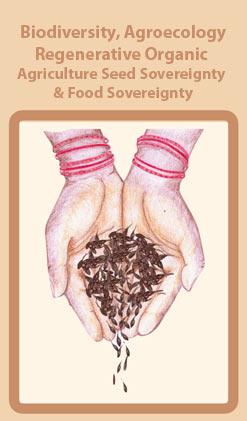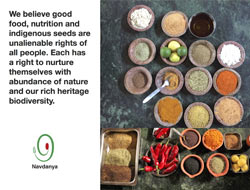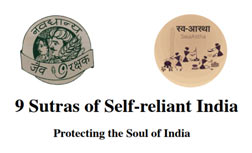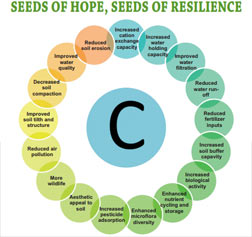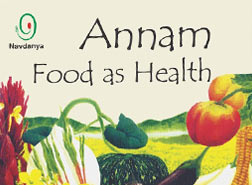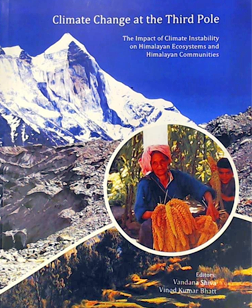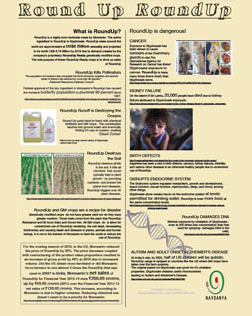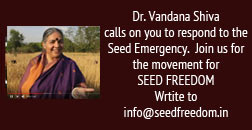The IB report makes specific mention of the Supreme Court cases which have been filed. It curiously also accuses civil society organisations and individuals of influencing 3 Committees that were officially mandated to assess GMOs. The IB report objects to these formal government reports, the Moratorium Orders of Shri Jairam Ramesh, the Parliamentary Standing Committee Report and the Supreme Court-appointed Technical Expert Committee Report (TEC) because they find that on current evidence, GM crops have little to contribute to Indian agriculture, safe food and food security. These findings did not accord with the view of the PMO, when headed by the erstwhile Prime Minister, Dr Manmohan Singh. This report was initiated under the UPA Government.
IB objects to protection of Indian seed and food sovereignty?: In 1998, when Monsanto introduced Bt cotton illegally, without the statutory approvals from the GEAC, we had to file a case in the SC to defend the laws of the land, our Constitution , our Seed Sovereignty and Food Sovereignty. When open field trials were being conducted without appropriate and independent Biosafety assessments, and expertise in these matters, the current cases in the Supreme Court were initiated in 2004 and 2005 to uphold the law:: protect the environment and safety of our seeds and food from irreversible genetic contamination, protect smallholder farming in India, and the health safety of 1 billion citizens. The country faces a major threat from the multinational Seed/chemical industry, seeking control over our seeds, our agriculture and our food. This is the focus and agenda of thousands of organizations and individuals resisting GMOs in India.
IB favors the foreign hand in the making of India’s Bt brinjal: The IB report quotes a Dr Ronald Herring of Cornell University who promotes GMOs , and the monopoly of Monsanto. It is ironic that the IB report relies on the evidence of Dr Herring with his antecedents in Cornell University, a hub of blind GMO promotion. It is the direct foreign hand along with USAID and Monsanto funding, behind the‘making of India’s Bt brinjal’. Here is a real foreign hand that informs the IB report. Has the IB report been written then with foreign influence, for the benefit and profits of foreign corporations? The strategy of the global GMO seed industry with their patents & IPRs (Intellectual Property Rights) is to bend regulation and influence governments and regulators to approve GMOs, by-passing scientific, transparent and independent safety testing.
Outrageous insult to our Parliamentarians and Contempt of Court by the IB:The PSC recommended a high-level enquiry into how Bt brinjal was approved by the Regulators for commercial release. The self-assessed safety-dossier by Mahyco-Monsanto was a cover-up as evidenced in independent assessments of the raw data by several leading international scientists. It staggers belief that the IB find it possible to hand out an outrageous insult to the Parliamentary Standing Committee, by suggesting that they have in effect been led ‘by the nose’ by activists and civil society groups and have no competence to address their official mandate on the subject. It is difficult to avoid the conclusion that the IB report has been influenced by those who have most to gain by undermining our seed and food sovereignty ie. The foreign corporations .
The IB report has also attacked the govt decision made under our Biosafety laws to impose a moratorium on Bt Brinjal. It is thus attacking our Biosafety. This will only suit foreign interests.
The IB is guilty of contempt of court since it attacks the Technical Expert Committee set up by the Supreme Court to look into the issues of GMOs and Biosafety. The case is still being heard.
The IB fails to refer to the important other official report, the ‘Sopory Committee Report’. This report of 2012 commissioned by the Ministry of Agriculture itself, is a stinging commentary on what is wrong with GMO regulation in India. Our regulatory institutions and the MoA have been indicted in this report for lies, fraud and lacking GMO expertise, and the truth with regard to contamination was revealed in this report.


